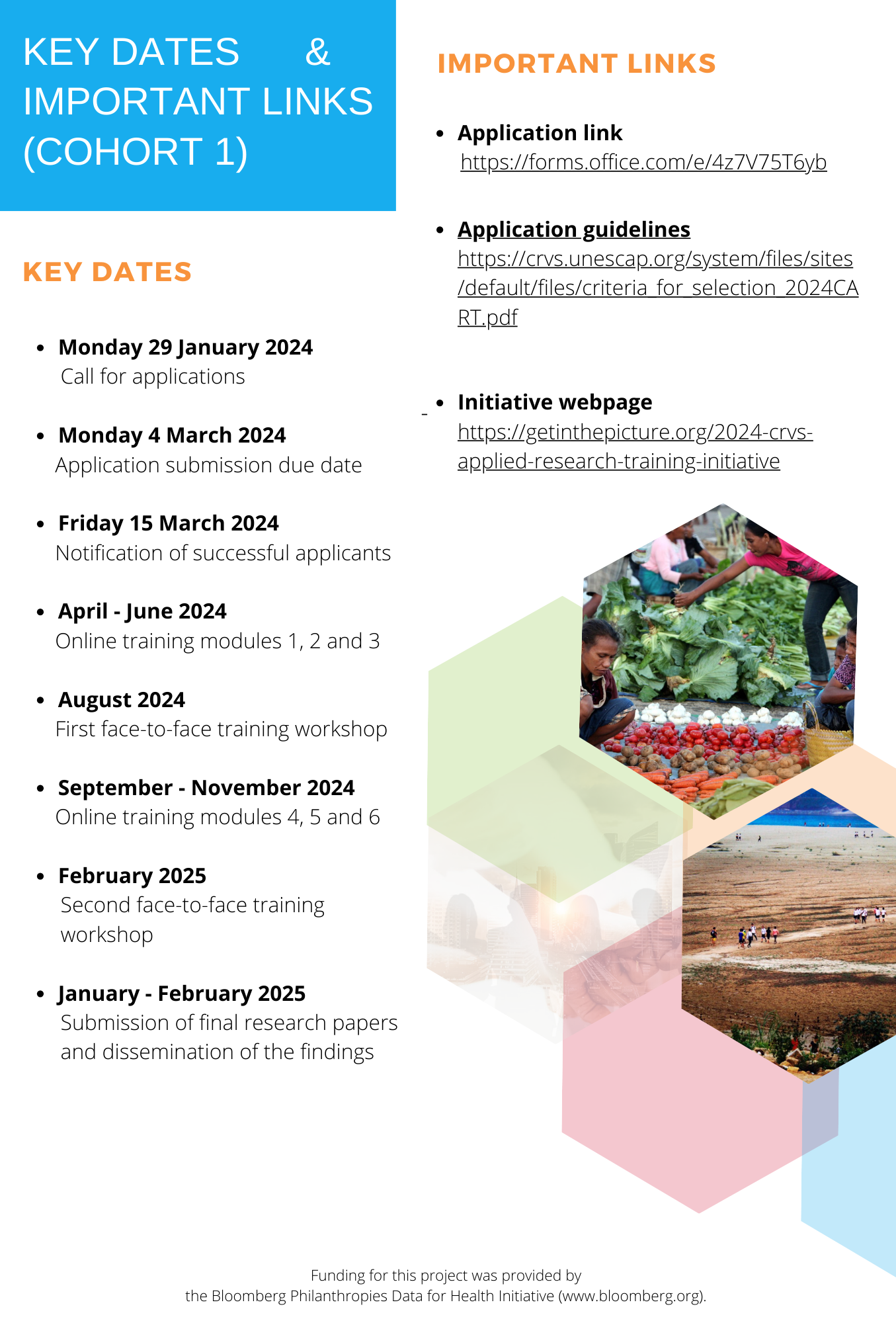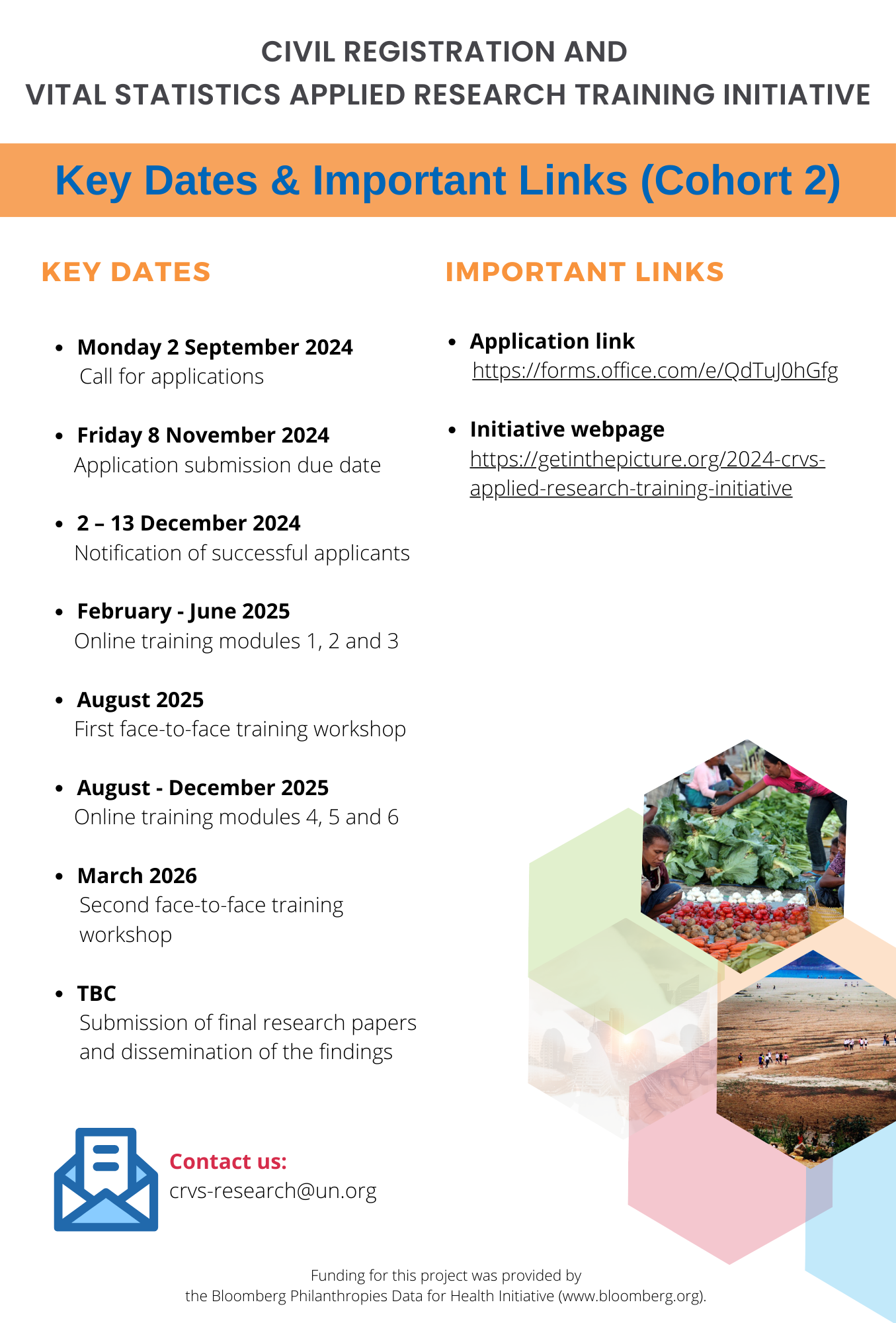- How to apply (application closed) and criteria for selection
- Concept note
- Flyer: key dates and important links: Cohort 1 | Cohort 2
- The first face-to-face training workshop in Dubai, UAE (26-30 Aug 2024)
Key dates
Cohort 1 key dates | Cohort 2 key dates | ||
| 29 January 2024 | Applications open | 2 September 2024 | Applications open |
| 4 March 2024 | Deadline for submission of applications | 8 November 2024 | Deadline for submission of applications |
| 15 March 2024 | Applicants notified of review outcome | 2 - 13 December 2024 | Applicants notified of review outcome |
| 2 April 2024 | First live session | Monday 3 February 2025 | First live session |
| 26 - 30 August 2024 | First face-to-face training workshop | August 2025 | First face-to-face training workshop (location TBA) |
| February 2025 | Second face-to-face training workshop | Mid/late March 2026 | Second face-to-face training workshop (location TBA) |
| March - April 2025 | Submission of final research paper and dissemination of findings | April - May 2026 | Submission of final research paper and dissemination of findings |
Background
The CRVS applied research training (CART) initiative focuses on enhancing CRVS systems through supporting applied research on strategies, interventions, and tools. This involves designing projects to address practical questions, employing robust methodologies, and identifying key personnel for effective implementation and publication. The need to strengthen practitioners' research capacity is evident, as highlighted in the Asia-Pacific CRVS research forum held in 2023. Challenges include limited time for essential research activities within program settings, hindering the completion and utilization of quality research. Additionally, building a critical mass of trained researchers is crucial, as talented individuals may not engage in research, leading to a shortage of research capacity.
This project aims to strengthen the capacity of CRVS practitioners to conduct high quality relevant research. It builds on a successful model implemented previously by the International Union Against Tuberculosis and Lung Disease and Medicins Sans Frontieres to build operational research capacity among health professionals, known as the “SORT-IT” model. While the project will be adapted for the CRVS context, the approach will be similar and incorporate the essential element as identified by Kumar et al. 2020, Zachariah et al. 2020 and Zachariah et al. 2016. Additionally, lessons reflecting the significant advances in elearning in recent years be considered to find the best blend and types of learning to achieve the objectives.
 |  |

